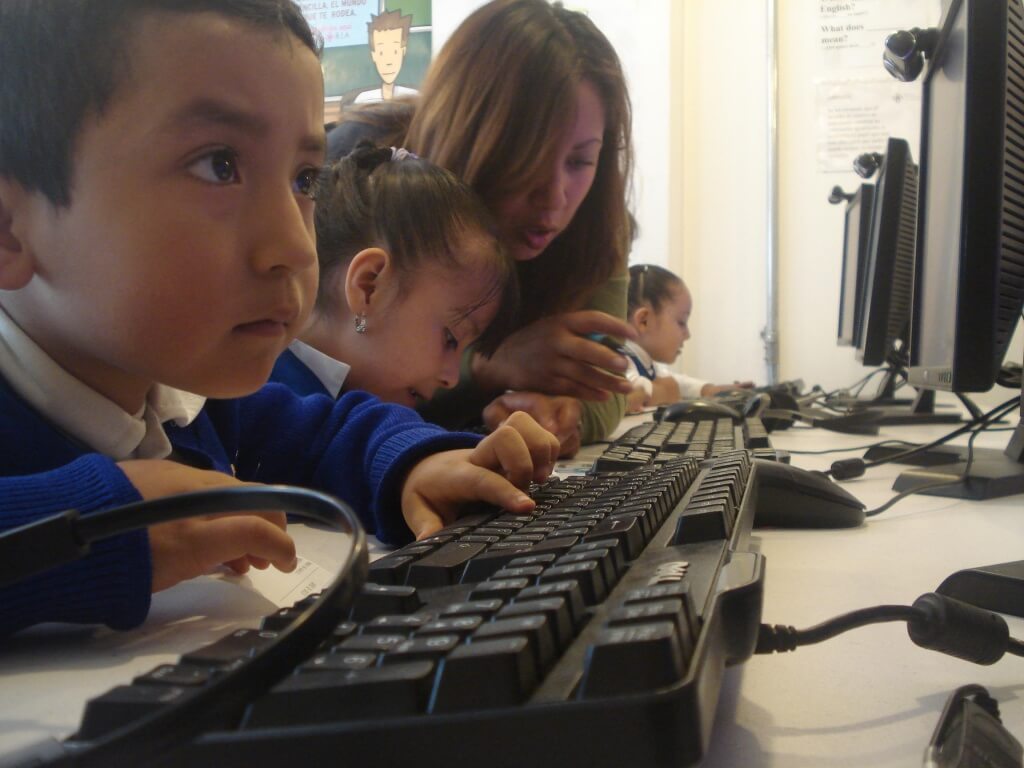The unknown dangers of the Internet: Addiction, Cyberbullying and Internet Grooming 01/12/2015
The development of new technologies is change our lifestyle. It’s not only changing the elderly people’s lives, now you can practically do bureaucratic paperwork online, and make an online inquiry as well. You don’t need to look for a number in the yellow pages or in the phonebook nor wait with your smartphone until you get an answer back. The internet has revolutionized our way of living and also ours kids’. Nowadays, the youngest at home watch their favorite cartoons on their tablets, computers, or on any electronic device, what implies a risk for all children, as a technological dependence starts at an earlier age.

Here is where the seriousness of the situation comes in. The latest studies carried out in Spain by EGM show very worrying data on this aspect, since it specifies more about the problem that this presents, according to this study, a 21% of Spanish children from 4 to 16 years are in danger of suffering a severe addiction to the internet. These data catapult Spain as the European country which has the highest rate of minors at risk of internet addiction, only surpassed by Romania (16%) and Poland (12%).
This situation has been generated, among other aspects, due to the willingness of having smartphones or tablets by the youngest at home. In Spain, 65% of children from 10 to 15 years own a smartphone, which means an enormous increase compared to last years. Furthermore, in that range of age shown before, 29% of minors under 10 years old own their own smartphone, these numbers increases up to 95% in teenagers of 15 years old.
This other study, carried out by INE, assures that 7 out of 10 Spanish children from 4 to 16 years old admits using social networks. 76% use WhatsApp, 80% listen to music online, 38% read and sends emails and 23% admit uploading pictures and videos online.

This problem might be even more serious than it seems, as this close-to-addiction to new technologies can cause our children to not fully develop their social skills, have a negative impact on their academic performance, or suffer from problems generated by the use of the Internet such as grooming or cyberbullying. 63% of minors have admitted getting in touch with strangers online using social media or other ways. Almost half of that 63%, (47%), stated that they have met up with the stranger in real life, with all the risks it conveys. Regarding cyberbullying, in Spain “only” occurs in a 4%, being the European country with the best results on this problem.
Another problem is the unwanted or nasty content children suffer on the Internet, 26% of minors admitted having seen disturbing content on the net. Among these contents, 13% affirm having received nasty content or media through WhatsApp or Messenger. These data increases even more when it comes to unpleasant content and 42% admit having seen them. Regarding sexual content, 6.5% say they have seen this type of content received either through WhatsApp (36%), social media (32%) or through pop-ups (31%).

In conclusion
These problems can be solved. The study recommends parents to be aware when their children are on the internet, so they don’t spend more time than necessary and, therefore, avoid that possible addiction. Using a parental control, for instance, parents can protect their children from getting on websites with sexual content or nasty and unpleasant content, avoid cyberbullying and grooming, protecting the youngest from the risks lurking on the Internet.




